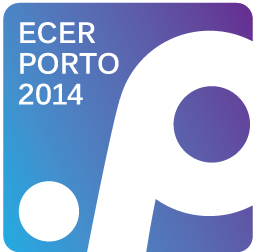Roundtable with former EERA presidents and SGs about significance of EERA and its future
Tuesday, 2 September, 17:15 - 18:15
Speakers:
Prof. Sverker Lindblad (President EERA 1999 - 2001)
Prof. Ingrid Gogolin (President, EERA 2004 - 2009),
Prof. Martin Lawn (Secretary General 1999 - 2001)
Prof. Lisbeth Lundal (Secretary General 2006 - 2008 )
Chair: Marit Honerød Hoveid (Current Secretary General)
Location: A101
In this roundtable some aspects of EERA as an umbrella organisation for educational research in Europe will be discussed. From the outset of the association in 1994 some of the following goals were outlined for the organisation:
- Educational research is at a critical stage of transition from relatively uncoordinated to more coherent activities, intended, among other things, to provide educational research policy makers with a better framework than in the past upon which policy makers can base their decisions. International cooperation is an important element of this strengthening process.
- Every country in Europe has different infrastructures in place for educational research. Countries with weaker infrastructures in this area should be able to benefit from countries with stronger structures. A broadly conceived EERA can play an important role in the related exchange and transfer processes.
- In several countries – France, in particular – education sciences are currently at the centre of an epistemological controversy. EERA could become an important conduit for internationalising such discussions.
- The existing international associations are either specialised in one specific discipline (e.g. psychology) or in one particular area (e.g. adult education). Moreover, there is a need for an umbrella organisation based on a broadly defined, unrestricted concept of educational research.
- The international organisations active in the field of education have a strong need for a discussion partner who can represent the entire field of educational research (this argument was made by the participating representatives of the Council of Europe and the OECD). An umbrella organisation of NERAs [National Educational Research Associations] and SERAs [Specialised Educational Research Associations] could act as such a partner.
- Many SERAs are confined to Western Europe. An EERA should try to also bring Eastern Europe into the fold (Gretler, 2007, pp. 176 -177)
In this roundtable issues these same questions will be discussed in light of what future one foresees for the European Educational Research association.
Reference:
Gretler, A. (2007). The International Social Organisation of Educational Research in Europe: Reviewing the European Educational Research Association as an Example--Facts and Questions. European Educational Research Journal, 6(2), 174-189.
[1] The EERA constitution §4, states that ‘national, regional or supra-regional corporation engaged in general educational research, if domiciled in Europe, may become a member’ thus SERA’s are not admitted as members today.

